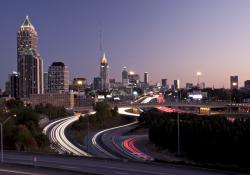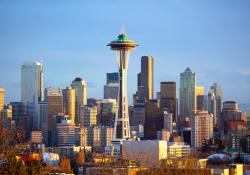
Colin Sowman looks at how a ruling regarding ANPR cameras in a small English town could have wide-reaching implications.
Superficially it was an easy decision: the local council and traders wanted, and were prepared to fund, automatic number plate recognition (ANPR) cameras installed to deter crime in Royston, a small town (population 17,000) in rural England. So in 2010/11 Hertfordshire Constabulary installed seven ANPR cameras on roads around the town in what became known locally as ‘the ring of steel’However, following complaints by civil liberties groups, the UK’s Information Commissioner’s Office (ICO) ordered Hertfordshire Constabulary to review the use of ANPR cameras around the town. The ICO judgement said: “The use of these cameras has effectively made it impossible for anyone to drive their car in and out of Royston without a record being kept of the journey.” It added: “The use of automatic number plate recognition cameras and other forms of surveillance must be proportionate to the problem it is trying to address.”
It said Hertfordshire Constabulary failed to carry out an effective impact assessment before installing the cameras and therefore breached the UK’s Data Protection Act which requires an authority to have legitimate grounds for collecting and using the personal data. The deployment also breached Principle 3 of the Act which states: Personal data shall be adequate, relevant and not excessive in relation to the purpose or purposes for which they are processed.
Therefore, the ICO ordered Hertfordshire Constabulary to stop processing people’s information in this way unless it can justify the use of ANPR cameras through a proper privacy impact assessment or similar.
The initial complaints to the ICO were lodged by privacy groups Big Brother Watch, No CCTV and Privacy International. Nick Pickles, director of Big Brother Watch told ITS International his organisation had no objection to “necessary and proportional” data gathering in relation to problems arising in a particular area. However, it believed the ANPR data gathering in Royston was excessive as there was no problem to counter.
In its statement the ICO said its enforcement notice “…sends a clear message to all police forces, that the use of ANPR cameras needs to be fully justified before they are installed. This includes carrying out a comprehensive assessment of the impact on the privacy of the road using public.”
The UK’s privacy legislation has its foundation in the United Nations’ Universal Declaration of Human Rights which states: “No one shall be subjected to arbitrary interference with his privacy, family, home or correspondence, nor to attacks upon his honour and reputation. Everyone has the right to the protection of the law against such interference or attacks.”
This is enshrined, with certain caveats, in the European Convention on Human Rights and then into British law.
“We believe Royston isn’t the only case where data is being recorded from everyone so this ruling will lead to scrutiny of other police forces,” Pickles says.
For Big Brother Watch the key issue is that the Royston system recorded personal information on individuals who had committed no crimes.
“We have no issues with an ANPR system being loaded with a regularly updated list of registration details for vehicles driven by individuals the police are seeking and then signalling an alert if one of these vehicles is captured by a camera. We also think the use of ANPR technology to detect uninsured vehicles being driven on the road is justified and efficient.
But it cannot be right to record and store the details of every person entering or leaving a town on the off-chance that they may have committed an offence or will do so at some time in the future.”
Big Brother Watch has a similar view on the use of ANPR cameras and technology for speed and red light enforcement. “We have no concerns about speed enforcement cameras recording the number plates of law-breaking motorists. But,” Pickles adds, “there has to be a justifiable reason why the cameras are installed in the first place, otherwise they will not get public acceptance.”
Free flow tolling systems are also concerning Pickles who repeats his philosophy: “Why should people who have done nothing wrong have their information and movements recorded?”
He believes individuals should hold their own data and decide if they wish to participate in any scheme. “If a motorist wants to opt-in to a freeflow system then it is their decision and we are perfectly happy with that, but there should always be a way to pay with cash for those who don’t want to participate.”
While he has no problem with incentives for motorists signing up to free flow tolling, his view is that the ‘penalties’ for those not joining should not be punitive.
The prospect of GPS-based tolling raises even greater concerns. Pickles is aware of the funding gap authorities are facing but believes the information should still reside with the individual: “They can notify the relevant authority how many miles they have driven every month, quarter or year and the authority can issue an invoice accordingly. Technology could be developed to enable the driver to apportion miles to a particular state or country without the authorities collecting the data directly.”
Similar considerations are being raised elsewhere and the American Civil Liberties Union (ACLU) has published a report entitled You Are Being Tracked. Its also supports systems that check registration details against a current list of suspects’ vehicles while objecting to individuals who have not committed criminal acts having their movements recorded and stored.
As ANPR use and regulation in US varies from one state to another, the ACLU’s report is based on survey responses from 293 police departments. It highlights (among others) the State of Minnesota where between 2009 and 2011 almost 1.7 million number plates were scanned while only 825 (0.05%) citations were issued leading to 131 arrests. While supporting the citations and arrests, the ACLU objects to the date, time and location details of the number plates for the remaining 99.95% of vehicles being stored and available to the public on request.
It reports that in 2012 the Minneapolis Star Tribune used a public records request to obtain and publish the records of 41 occasions on which Mayor RT Rybak’s car was detected by ANPR cameras during the previous year. Following the publication, the report says Minnesota imposed a temporary revision preventing the release of number plate information to the public which, unless extended, will expire in August 2015.
The ACLU acknowledges Ohio for deleting all ‘non-hit’ captures immediately but says New Jersey’s Attorney General requires number plate data collected by law enforcement agencies to be stored for five years. Furthermore, according to the report the Attorney General says data mining techniques should be on the number plate records to ‘detect suspicious activities that are consistent with the modus operandi of criminals’.
The authorities in some areas are reported as not setting law enforcement agencies any policy guidance regarding number plate data.
Of particular concern to ACLU (and Big Brother Watch) are private companies using ANPR to enforce parking regulations and the like. You Are Being Tracked reports one private company as saying it has photographs and location data on ‘a large majority’ of registered vehicles in the US. To counter this, the ACLU wants legislative oversight imposed on the private companies capturing, storing and distributing number plate information.
The report does highlight five states that impose restrictions on privately operated number plate readers – although these specifically exclude free flow tolling systems.
The common theme is that privacy groups do not have a blanket objection to ANPR or speed cameras, free flow or GPS tolling.
They do, however, want the collection and use of number plate and vehicle information to be proportionate to any problem and legislation to ensure details of innocent individuals are deleted as soon as possible without being passed to a third party.
UK moves on CCTV usage
England and Wales have introduced a code of practice on the use of CCTV surveillance and ANPR cameras by the police and local authorities. Introduced under the Protection of Freedoms Act 2012, the code says the cameras can only be used in ‘pursuit of a legitimate aim’ and when they ‘meet a pressing need’.
The post of Surveillance Camera Commissioner has been set up to oversee compliance. The














